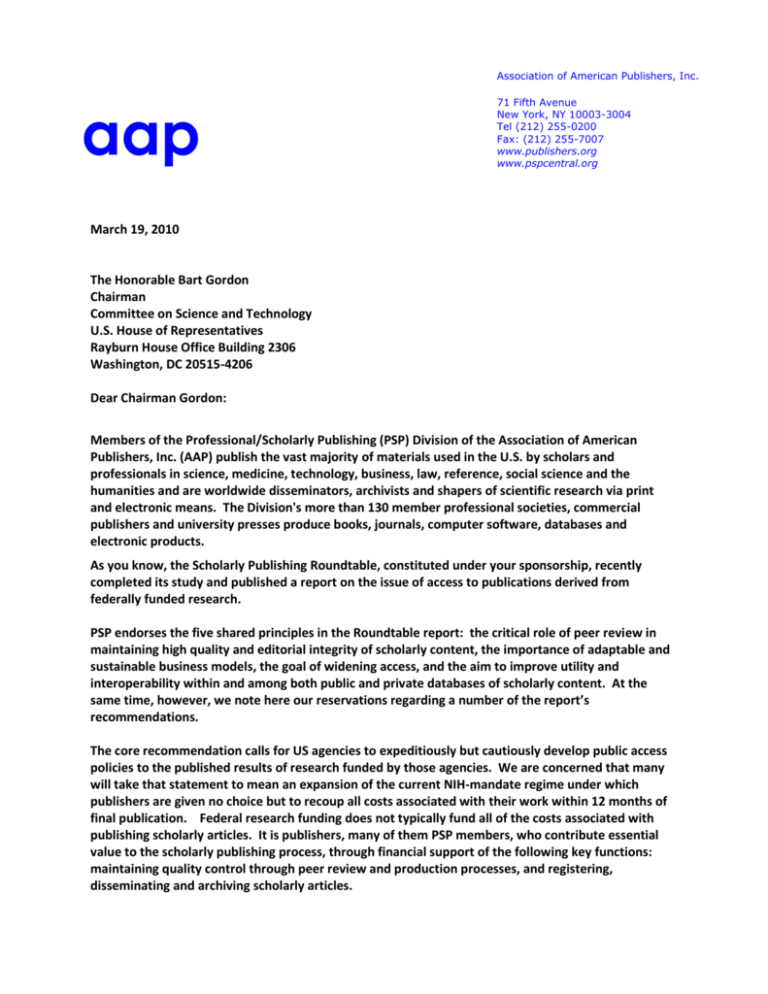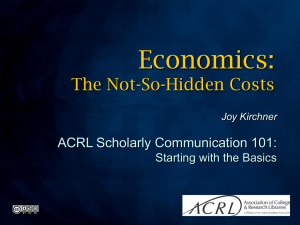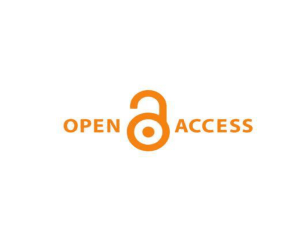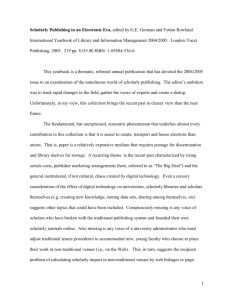Association of American Publishers
advertisement

Association of American Publishers, Inc. aap 71 Fifth Avenue New York, NY 10003-3004 Tel (212) 255-0200 Fax: (212) 255-7007 www.publishers.org www.pspcentral.org March 19, 2010 The Honorable Bart Gordon Chairman Committee on Science and Technology U.S. House of Representatives Rayburn House Office Building 2306 Washington, DC 20515-4206 Dear Chairman Gordon: Members of the Professional/Scholarly Publishing (PSP) Division of the Association of American Publishers, Inc. (AAP) publish the vast majority of materials used in the U.S. by scholars and professionals in science, medicine, technology, business, law, reference, social science and the humanities and are worldwide disseminators, archivists and shapers of scientific research via print and electronic means. The Division's more than 130 member professional societies, commercial publishers and university presses produce books, journals, computer software, databases and electronic products. As you know, the Scholarly Publishing Roundtable, constituted under your sponsorship, recently completed its study and published a report on the issue of access to publications derived from federally funded research. PSP endorses the five shared principles in the Roundtable report: the critical role of peer review in maintaining high quality and editorial integrity of scholarly content, the importance of adaptable and sustainable business models, the goal of widening access, and the aim to improve utility and interoperability within and among both public and private databases of scholarly content. At the same time, however, we note here our reservations regarding a number of the report’s recommendations. The core recommendation calls for US agencies to expeditiously but cautiously develop public access policies to the published results of research funded by those agencies. We are concerned that many will take that statement to mean an expansion of the current NIH-mandate regime under which publishers are given no choice but to recoup all costs associated with their work within 12 months of final publication. Federal research funding does not typically fund all of the costs associated with publishing scholarly articles. It is publishers, many of them PSP members, who contribute essential value to the scholarly publishing process, through financial support of the following key functions: maintaining quality control through peer review and production processes, and registering, disseminating and archiving scholarly articles. 2 Publishers agree that taxpayers should have access to taxpayer funded research, and that the government should ensure access to such research, but Federal research funding does not typically fund all of the costs associated with publishing scholarly articles. While taxpayers fund research, they do not fund the publication of research results in peer-reviewed science journals. Government has an important interest in ensuring that research data and technical reports are accessible to the public whose taxes funded their production. That interest does not extend to expropriation of content in which publishers have invested. Such a taking is fundamentally unfair to the publisher because it allows government, without providing just compensation, to deliberately take the value of the publisher’s “quality assurance” processes and also undermines the publisher’s right to distribute the final published article. It is also not consistent with copyright principles. Such principles are meant to prevent harm to the potential market for copyrighted works—harm which would be highly likely if near-final earlier versions of the copyrighted works were distributed worldwide, for free, in competition with the rightsholders’ final published version. PSP is concerned about inflexible unfunded public access policies that could potentially threaten the viability, and therefore the future, of scholarly and professional organizations involved in the publishing enterprise, as well as future access by their readers and customers who rely on those publications for timely and trusted access to scholarly materials. The Roundtable began an engagement process with publishers that sought to construct a balance between improving access and sustaining the scholarly publishing enterprise and the values that it brings to American society, and this engagement should continue. Furthermore, although PSP is strongly in favor of the recommended consultation and collaboration with the scholarly publishing industry, we remain concerned about the appropriate role of the Federal Government in a global publishing system. Assuredly, the Government can play an important role in establishing and promoting standards for interoperability among various public and private publication platforms and databases. However, if the Federal Government implements overly prescriptive public access policies that remove the incentives for the significant continuing private investment that this industry makes, the Government will have overstepped its role and could potentially harm this industry, which currently invests $3 billion in publishing technology and services, employs 30,000 people in the U.S. economy, and annually contributes positively to the U.S. balance of trade. PSP disagrees with the Roundtable statement to the effect that embargo periods of 0 to 12 months could be implemented for “many sciences” to allow scholarly publishers to recoup their investment from subscription payments from research institutions (the present dominant business model) before a publication is made publicly available globally. As of now, the impact of the Federal Governmentmandated and unfunded embargo periods on the continued viability of affected publishers is not clear and could not be quantified by the Roundtable or other experts who have studied the issue. Another concern is the Report’s emphasis on the importance of the article’s Version of Record (VoR) to scholars. The insistence that publishers provide free access to the VoR may be commendable for the preservation of the integrity of the scholarly record, but it is precisely the VoR that represents the greatest investment by the publisher. As noted above, most publishers recoup the bulk of their investments through subscription payments that would certainly be at risk with mandated embargo periods. 3 In summary, PSP supports the collaborative process exemplified by the Scholarly Publishing Roundtable. We urge the government to investigate both short- and long-term effects that any public access policy would have on the scholarly publishing industry before implementing any free public access policies and to use a consultative process with the publishing industry to achieve greater good without harmful effects to the scholarly publishing system, its contributors and the researchers who rely on access to publishers’ work product to further the cause of science. Sincerely yours, Glen P. Campbell, Chair Executive Council Professional/Scholarly Publishing Division Association of American Publishers g.campbell@elsevier.com Susan King, Vice Chair Executive Council Professional/Scholarly Publishing Division Association of American Publishers s_king@acs.org cc: PSP Executive Council (attached)






